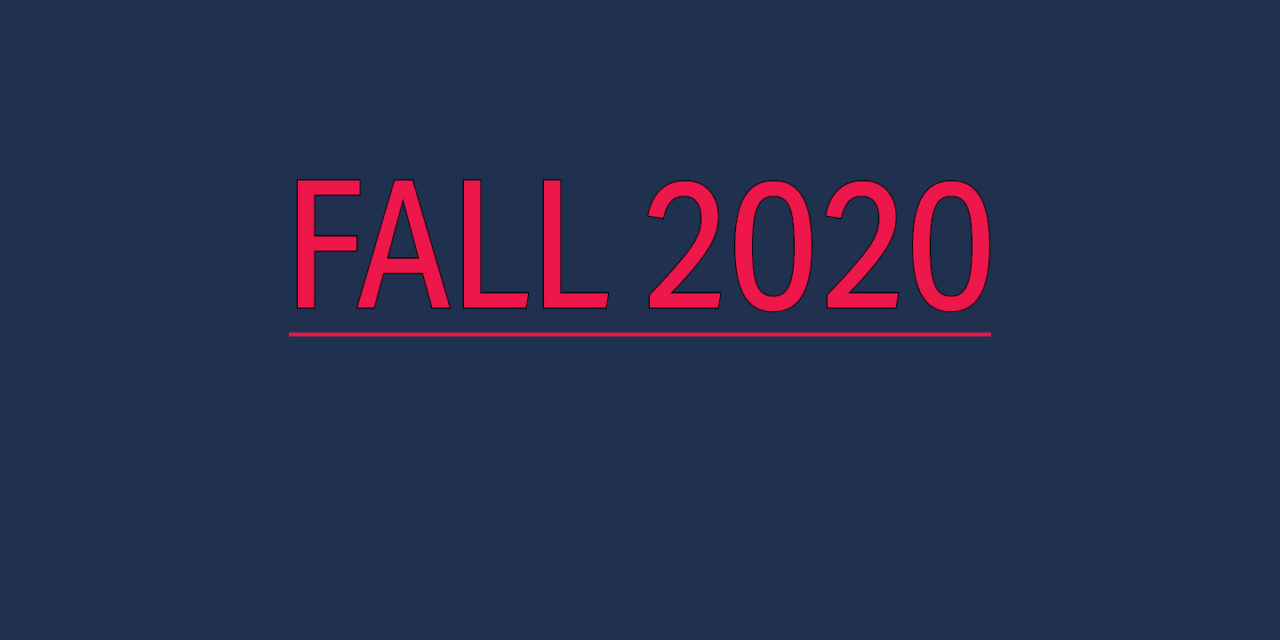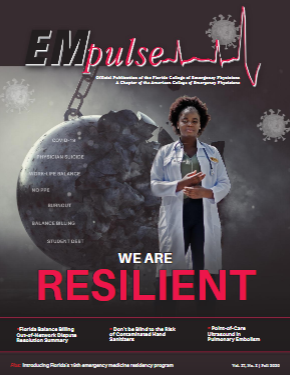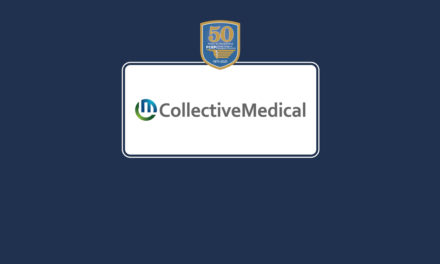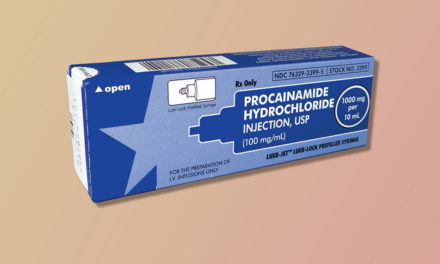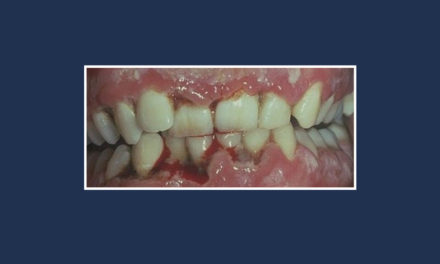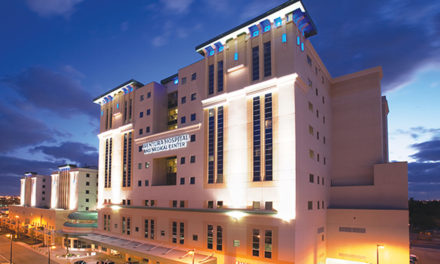Fall 2020: ACEP President’s Message
The years are short, but the days are long.
This is my last article to FCEP as the ACEP President… and my last speech to Council is coming up soon. I have been thinking quite a bit, not only of this year, but the three decades of both being an emergency physician and the 30-year mark I recently hit as an ACEP member. If you spare me the comments on age, I will spare you the long retrospective look into my career.
To begin, I would like to share an overview of one of the major events of the last few months: the Summit on Preparing for the Next Pandemic. I am humbled and gracious for the many hours of preparation ACEP staff put into this summit, and the tremendous knowledge exchange from many of our experts in emergency care. I truly believe the efforts of the dozens of people involved will serve as a blueprint for many activities in emergency medicine for years to come.
To summarize, the summit’s eight sessions included discussions on:
- Communications: What breaks down often in a crisis is communication. How does the information get communicated within ACEP, within our communities and from the different perspectives of the roles we serve? We need an organized plan to reach everyone who needs to know: health care systems, emergency teams and other stakeholders.
- Data and Analysis: This pandemic has brought an unprecedented flow of information through traditional and non-traditional channels. In a very dynamic environment, the noise must be minimized to find the signals. How do we stay informed on rapidly changing standards of practice, and how can we raise awareness more quickly? We need verifiable data systems that interconnect at the local, state, regional and national levels. As an aspiration, the interconnections at an international level would allow more coordinated responses.
- Deployment and Distribution of Physicians and Other Health Care Workers: Saturation of the workforce in highly affected communities leads to more demand than capacity and rapid burnout of the health care system. Strategies to move the workforce to the need, not only intra-specialty but inter-specialty, were necessary and can be improved.
- Disparities and Vulnerable Populations: We have long known that health outcomes are worse in vulnerable populations and where there are disparities in access to care. Outcomes in patients with COVID have certainly shown the same trend. As with any coordinated plan for an unexpected event, we need specific plans to alert and support these populations and their caregivers.
- Information Flow: Events such as these create different experiences in different communities based on many factors. How can and did we share that information effectively across those communities and stakeholders so that we can be better prepared? We need to develop plans that will enhance community trust.
- Research: Good discussion on pretty much the same research questions as any – what happened, why did it happen (and what confidence do we have that these answers are “correct”), and what do we still need to learn. We need to build these networks now in anticipation of the next event.
- Supply Chain: One of the biggest and ongoing stories of our experience is the inability to manufacture and distribute goods that we need related to health care delivery. Understanding the supply chain helps us define the barriers and demand new solutions for emergency care.
- Workforce Support and Sustainability: Physicians in general are experiencing significant burnout and depression. Especially in the context of this year, emergency physicians express an even greater level of those conditions. How can we support them starting at even the ground level of physiologic and safety needs? We need the systems that support our colleagues, reducing the barriers that currently exist which prevent them from getting the help they need.
In one of my favorite quotes, Sir Isaac Newton stated that “if I have seen a little further, it is by standing on the shoulders of giants.” My presidency began chronologically last October, but in reality it began when I started emergency medicine about 30 years ago. I often think of the growth of emergency medicine as having some very distinct periods of rapid change. The first, of course, is the pioneers who had a vision to create a better system of care in our emergency rooms. Taking risk and ridicule, they initiated that change. The next distinct period is the initiation of the educational components and a Board to codify and memorialize those efforts. We have difficulty, even today, trying to explain what we do and the value we provide. Imagine being one of those earlier pioneers who had to develop and explain the context and the content. None of those accomplishments could have been advanced without a vision and a strategy, with enough confidence in the outcome that those barriers along the way were shoved away. We are stronger by their experiences.
Our time is now. We are the shoulders that current and future generations of emergency physicians will stand on, and a sea of change is underway. All of the work initiated by these summits, let alone the other work of emergency medicine, requires the same intention. Even though we have the verbal acknowledgement, we need to change the support to execution and outcomes. Despite a pandemic and holding the care of so many communities in our hands, we still also face questions on our labor force, our wellness and our reimbursement, which affect access for our patients. As importantly if not more so, we are often an integral part of those communities where disparities are the most significant. These changes will require us to do what those before us have done: find a shared vision, have a strategy, and shove away the barriers that prevent us from doing so.
I will close with a quote, and by telling you that you are more important than you think. Thank you for all that you do.
Without realizing it, we fill important places in each other’s lives. It’s that way with the guy at the corner grocery, the mechanic at the local garage, the family doctor, teachers, neighbors, coworkers. Good people who are always “there,” who can be relied upon in small, important ways. People who teach us, bless us, encourage us, support us, uplift us in the dailiness of life. We never tell them. I don’t know why, but we don’t.
And, of course, we fill that role ourselves. There are those who depend on us, watch us, learn from us, take from us. And we never know.You may never have proof of your importance, but you are more important than you think. There are always those who couldn’t do without you. The rub is that you don’t always know who.
― Robert Fulghum, All I Really Need to Know I Learned in Kindergarten
This article is part of the following sections:

